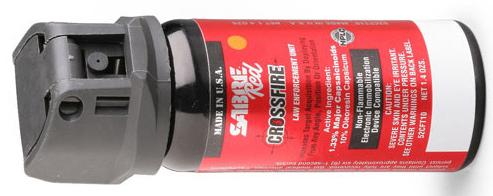Table of Contents
- Overview of Pepper Spray Usage and Associated Risks at Public Events
- Legal Framework and Recent Policy Changes Implemented by Venues
- Impact on Security Protocols and Emergency Response Strategies
- Guidelines for Attendees to Ensure Safety and Compliance at Sporting and Concert Events
- Wrapping Up
Overview of Pepper Spray Usage and Associated Risks at Public Events
In recent years, the use of pepper spray at large-scale public gatherings such as sporting events and concerts has raised significant safety concerns. While pepper spray is intended as a non-lethal self-defense tool, its deployment in crowded venues can lead to unintended injuries and mass panic. The chemical agent causes intense irritation to the eyes, respiratory system, and skin, which can escalate into severe discomfort or medical emergencies, especially in confined areas where crowds are dense. Event organizers and security personnel frequently encounter challenges in balancing personal safety with the potential hazards that pepper spray presents in these environments.
Risks frequently associated with pepper spray use at public events include:
- Uncontrolled dispersal leading to exposure of bystanders not involved in altercations
- Triggering stampedes or chaotic evacuations due to sudden reactions
- Complications for individuals with pre-existing respiratory conditions such as asthma
- Potential legal liabilities for venues permitting or overlooking the possession of pepper spray
Given these considerations, many stadiums and concert halls have implemented outright bans on pepper spray. These measures aim to enhance public safety by minimizing risks and ensuring rapid response capabilities are focused on managing incidents without chemical interventions. Heightened security checks and clear communication of prohibited items have become standard practices to enforce these bans effectively across various regions.
Legal Framework and Recent Policy Changes Implemented by Venues
Recent legislation at both state and local levels has significantly influenced venue operators to enhance security protocols by banning pepper spray on their premises. These legal changes typically classify pepper spray under prohibited weapons in public assembly areas, aiming to prevent its misuse and reduce injury risks during large events. Venues are now mandated to update their acceptable items lists, perform thorough security screenings, and clearly communicate these restrictions to patrons through signage and pre-event notifications. Compliance with these mandates is closely monitored by regulatory agencies, ensuring that venues maintain a safe and controlled environment.
In addition to legislative acts, many venues have voluntarily implemented stricter policies following high-profile incidents involving pepper spray. These include:
- Enhanced entry screening procedures utilizing advanced detection equipment to identify prohibited items.
- Comprehensive staff training programs focused on recognizing and managing security threats related to chemical sprays.
- Collaborative frameworks with local law enforcement to streamline incident response and ensure swift enforcement of bans.
These combined efforts reflect a growing commitment within the entertainment and sports industries to safeguard attendees through legal compliance and proactive security measures.
Impact on Security Protocols and Emergency Response Strategies
Venue security teams are adapting swiftly to the new regulations, implementing enhanced screening processes and adopting alternative deterrent measures. This shift necessitates rigorous updates to existing protocols to maintain safety without relying on pepper spray as a defensive tool. Staff training now emphasizes conflict de-escalation techniques and increased presence of surveillance technologies to preempt potential threats. Additionally, collaboration with local law enforcement has intensified, ensuring rapid response capabilities are maintained or improved despite the removal of chemical deterrents.
Emergency response strategies are being recalibrated to address these changes without compromising crowd safety. Medical teams and first responders are equipped with updated action plans focused on swift injury assessment and containment of physical altercations. Key components include:
- Enhanced communication systems to facilitate real-time coordination between security, medical personnel, and local authorities.
- Implementation of non-chemical defensive equipment such as foam batons and expandable batons.
- Emphasis on proactive measures that focus on opportunity reduction rather than reactionary tactics.
Guidelines for Attendees to Ensure Safety and Compliance at Sporting and Concert Events
Attendees are reminded to fully comply with venue policies that prohibit the possession and use of pepper spray. To ensure everyone’s safety, event staff and security personnel will conduct thorough bag checks and screenings at all entry points. It is strongly advised to leave any prohibited items at home or in secure locations outside the venue. Cooperation with security measures not only speeds up entry but also creates a safer environment for all participants, performers, and staff.
For a smooth experience and to uphold public safety, attendees should also adhere to the following:
- Follow official announcements and instructions from venue staff during the event.
- Report suspicious behavior immediately to security personnel or event staff.
- Refrain from bringing any prohibited items: such as weapons, fireworks, or substances that pose risk to others.
- Maintain awareness of your surroundings to assist in preventing safety hazards.
Wrapping Up
In summary, the enforcement of pepper spray bans at sporting and concert venues reflects a growing emphasis on enhancing public safety and preventing potential hazards associated with its use. While these measures may prompt debate over personal security and individual rights, venue authorities and law enforcement agencies maintain that such restrictions are essential for maintaining a secure and enjoyable environment for all attendees. As these policies take effect, ongoing assessment will be crucial to balance safety priorities with the needs and concerns of event-goers.Check Our Other Blogs
- StunGun – Your Trusted Source for Stun Guns, Laws, and Self-Defense Tips
- PepperSprayLaws – Your Trusted Resource for Pepper Spray Information
- StunGunLaws – Your Trusted Guide to Stun Gun Legality and Safety




